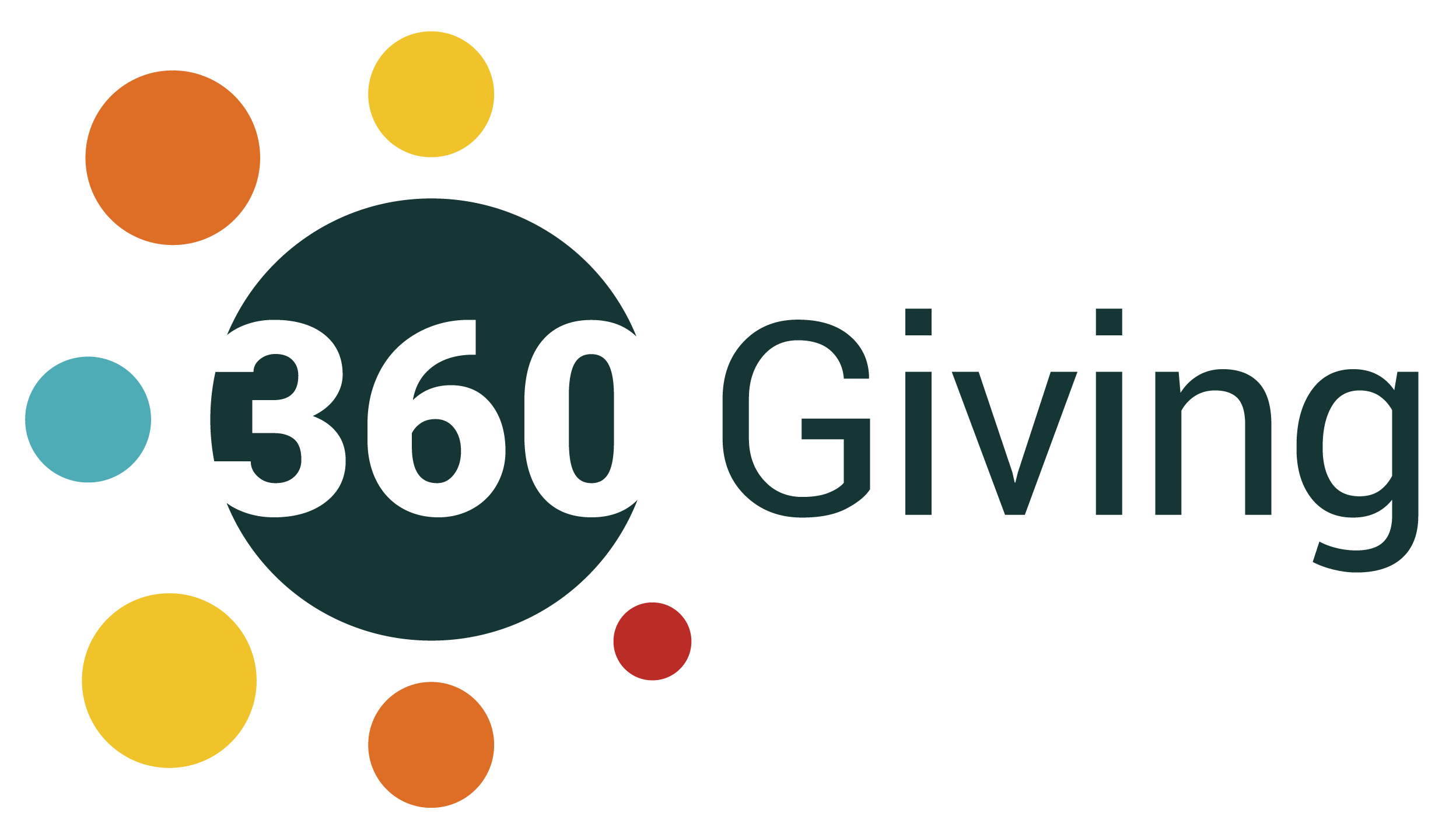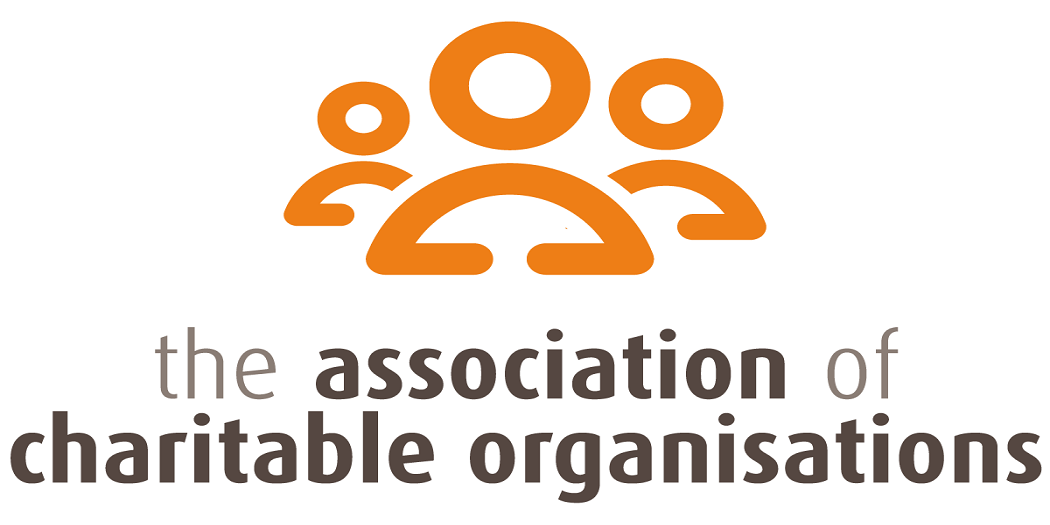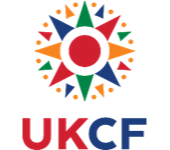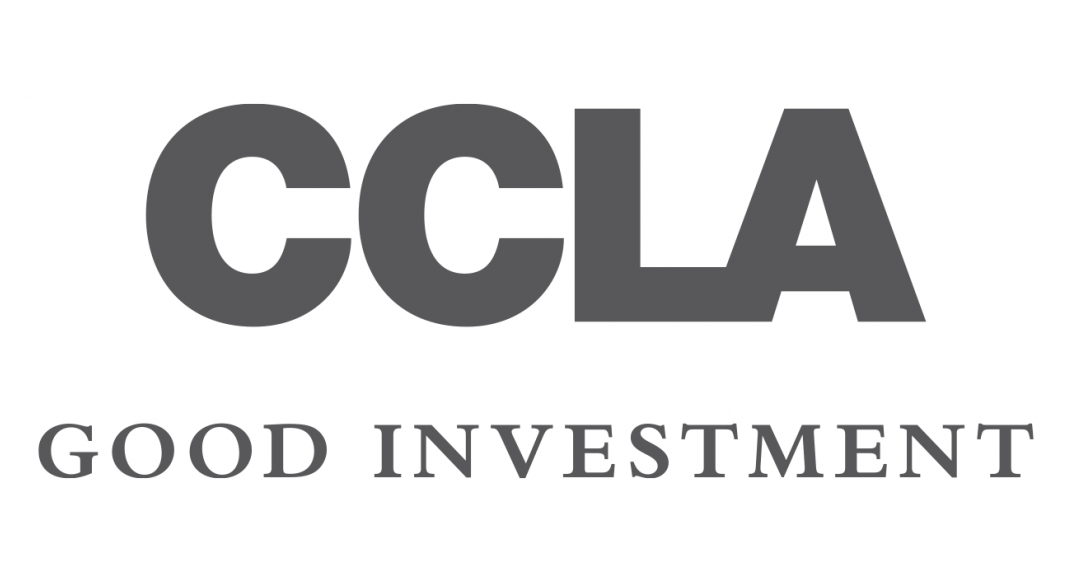UKGrantmaking 2025
What is UKGrantmaking?
UKGrantmaking is the definitive annual publication on grant funding in the UK.
It provides a comprehensive overview of who makes grants across all funding sectors – Government, Trusts and Foundations, National Lottery distributors, Donor-Advised Funds, and Charities.
It’s a free, interactive platform that collates and analyses information on grants made during the most recent year when published statutory accounts information was available. For the current edition, published in June 2025, we’re looking at data from 2023-24. It also explores data published using the 360Giving Data Standard to understand the grants and recipients.
This allows funders, sector bodies, policymakers, researchers, fundraisers, and sector media to access valuable data about the state of UK grantmaking in one place.
UKGrantmaking is a collaborative project brought to you by 360Giving, Pears Foundation, The Association of Charitable Foundations (ACF), The Association of Charitable Organisations (ACO), UK Community Foundations (UKCF) and London Funders.
Key findings
Over 14,000 UK grantmakers provided grants worth over £23 billion in 2023-24. This represents an increase of 7%, which is slightly above inflation.
Although grantmaking increased overall in 2023-24, this isn’t a straightforward story. No group of funders that we have identified is homogeneous – there is so much diversity in organisation size, structure, context, and strategy. We’ve seen large increases, significant drops, and many grantmakers maintaining their levels of giving. This variation is normal – it’s what we’d expect to see based on previous years.
Highlights
- Grantmaking by Trusts and Foundations increased by 12% compared to the previous year to £8.2bn.
- Endowment levels have remained relatively flat over the past five years, representing a decline in real terms since 2020-21.
- Donor-Advised Funds (distributing philanthropic gifts from individuals and families) increased grantmaking by 20% to £2.1bn and are becoming a growing part of the voluntary and community sector’s income.
- New data from the Charity Commission for England and Wales has more than doubled our estimate of grants to individuals and families from £400m to £850m a year. This represents an increase in available data, rather than an increase in grantmaking.
- Just 28% of the value of grants to charities with a registered address in London was to organisations that operate in London only – with the majority of funds to London organisations being to charities operating nationally and internationally.
- National Lottery distributors awarded grants totalling over £2.4bn.
- Philanthropic grants and donations from foundations and Donor Advised Funds have overtaken government bodies and lottery distributors as the largest source of grant income to the voluntary and community sector – although government remains the main provider of contract income.
As well as being able to explore grantmaking data from 2023-24 interactively and in detail on the UKGrantmaking platform, you can read about what this data means for different groups of funders, charities, researchers, and policymakers in our blog.
The platform has been designed so that it can be read in different ways:
- As a report, with a button at the end of each section to view the next and previous pages.
- Go straight to areas of specific interest using the chapter headings in the menu on the left of your screen.
All visualisations and tables are interactive, so you can dig into the detail of what interests you. Tables can be searched and sorted, and charts or visualisations expanded in Flourish. You can also download data for use outside the platform – either in summary form at the bottom of each table, or in its entirety on our methodology and data page.
For inspiration about how you could use the information shared in UKGrantmaking, please visit our FAQ.
Next steps
Use grants data
After exploring the data here, you can dive deeper into specific grants in the 360Giving search engine, GrantNav. Throughout UKGrantmaking, funders who publish their data using the 360Giving Data Standard are marked with the 360Giving logo by their name so you can see where more data is available – including grants awarded after 2023-24.
If you’ve been inspired by this analysis and you want to find out how you can use 360Giving data in your work, sign up for an upcoming workshop on using GrantNav. You can also book a 1-1 data support call for specific advice about 360Giving data.
Publish grants data
This is the second edition of our sector-wide research collaboration. As our understanding of grantmaking improves, people have more questions – for example, about different areas or themes.
We intend to repeat the analysis annually, and to draw on greater insights, but to do so, we need your support to increase the availability and quality of grants data. This includes publishing comprehensive and timely grants data using the 360Giving Data Standard, and encouraging others working in your area, sector, or even your funders to publish their grants data.
If you are a funder who hasn’t published before but want your grants to be included in the Grant Recipients section of our next edition, 360Giving provides a wide package of pro-bono support to help you, including introductory workshops, online guidance, and 1-1 calls.
Tell us what you think
To support future editions of UKGrantmaking, your feedback on the approach, content, and how it could be improved is essential. We welcome suggestions for amending issues with the data or segmentation, and please do submit your questions to our FAQs.
Approach
Analysis from the current edition, published in June 2025, is based on grants made in 2023-24, which is the most recent year for which statutory reports are available. Sector partners have shared commentary and insight to complement the data and support a wider understanding of the overall picture.
Direct comparisons cannot be made to the 2024 edition, which is based on grants made in 2022-23, due to greater availability of data this year. Our year-on-year comparisons use restated numbers for 2022-23.
The analysis, conducted by 360Giving, is based on information from regulators and statutory accounts. It also uses data published using the 360Giving Data Standard to understand the grants and recipients. All sources had limitations and needed some level of manual intervention due to the quality of the data. We have taken a proportionate approach to this, and continue to learn lessons that can be applied in future years.
You can read more about this on our methodology and data page.
Our partners
-

360Giving
360Giving helps funders publish open data about their grants and supports people to use this data to improve charitable giving. The vision is for grantmaking in the UK to become more informed, effective and strategic.
360Giving’s aim is for more money to go to where it is needed most to support communities and causes through a more informed understanding of the grantmaking picture. It helps people to access and use the data by creating the tools to make it easy to explore, download and visualise, as well as providing training, support and research to help people get the most out of it.
360Giving is the lead for this collaboration and manages the platform and data.
-

Association of Charitable Foundations
The Association of Charitable Foundations (ACF) is the leading membership organisation for foundations and independent grantmakers in the UK. We believe that the foundation model of philanthropy plays a vital role in addressing societal challenges and fostering positive change.
ACF is the lead contributor on the Trusts and Foundations section. -

Association of Charitable Organisations
The Association of Charitable Organisations (ACO) is the membership body for charities that provide financial and wellbeing support to individuals. They encourage knowledge sharing, collaboration and best practice across their network. ACO enables members to benefit from collective expertise, experience, and resources to address common issues and develop shared solutions.
ACO is the lead contributor on the grants to individuals section. -

UK Community Foundations
UK Community Foundations (UKCF) works with community foundations to inspire place-based philanthropy, bring communities together and fund vital work in neighbourhoods across the UK. Each community foundation is deeply rooted in place, drawing on decades of knowledge, relationships and expertise in the areas where they operate. At the national level, UKCF works with strategic partners to pilot new neighbourhood ideas and scale existing solutions, making sure resources reach people and communities where they are needed the most.
UKCF is the lead contributor on the community foundations section.
-

London Funders
London Funders is the only cross-sector membership network for funders and investors in London’s civil society. Their membership ranges from trust and foundations to corporates, from hyper-local to national funders. Their purpose is to bring funders together to build a better London by taking action on what matters to our city and our communities. They do this through: enabling a movement of members to have strong and trusted connections, based on shared values and ambitions; facilitating and leading collaborative programmes where only working together can achieve the change that’s needed; and by driving a learning culture, where shared data, intelligence and insight leads to better decision-making and action.
London Funders is the lead contributor on the London focus section.
Our supporters
-

Pears Foundation
Pears Foundation is an independent family foundation rooted in Jewish values, investing over £20 million each year in a wide range of charitable organisations and causes. Led by the Pears family, the Foundation’s activities are focused on understanding complex issues, engaging people in achieving social progress and promoting wellbeing.
Pears Foundation has supported this project to build on the previous Family Foundation Philanthropy and Foundation Giving Trends analysis which it has funded and contributed to since 2008.
-

CCLA
We are the UK’s largest charity fund manager*, looking after more than 30,000 charities and not-for-profit organisations. Founded in 1958, we are independently owned by our clients and staff with £14.5 billion of assets under management as at 31 March 2024.
All of our charitable clients are established to do some good in the world. Our purpose is to help them maximise their impact on society by harnessing the power of investment markets.
We are working with our clients and the investment industry towards a new era of sustainable investment – pushing for change on the climate crisis, addressing modern slavery and other human rights injustices, and engaging with companies regarding the mental health of their Workforces.
CCLA Investment Management Limited is authorised and regulated by the Financial Conduct Authority.
*Charity Finance named CCLA as the number one asset manager for charities in the UK in 2021, 2022 and 2023.
Acknowledgements
This project would not have been possible without the contributions and support of many people, including:
The 360Giving team, especially David Kane and Ruth Jolley, the lead analysts for the project.
Leads at partner organisations, especially:
- Bridget Kohner (Pears Foundation)
- Jade Yap (Association of Charitable Foundations)
- Donal Watkin (Association of Charitable Organisations)
- Grace Perry (London Funders)
- Naseef Zaman (UK Community Foundations)
National Lottery contributors:
- Tim Gebbels (National Lottery Promotions Unit)
- Tim Birch (National Lottery Promotions Unit)
The UKGrantmaking advisory group members, including:
- Lee Robinson, NCVO
- Ceri Edwards, Chartered Institute of Fundraising
- Anoushka Kenley, PBE
- Jay Kennedy, Directory of Social Change
- Ben Cairns, IVAR
- Nitya Teagarajan, Grant Funders Network
- Ruth Walker, Funders Forum for Northern Ireland
- Nick Addington, William Grant Foundation, Scottish Funders Forum, EFN
- Emma Horrigan, City Bridge Foundation
- Adam Lopardo, Community Foundation North East
- Sufina Ahmad, John Ellerman Foundation
- Jason Arthur, Mission 44
- Rhodri Davies, Why Philanthropy Matters
- Karl Wilding, University of Kent
- Tobias Jung, St Andrew’s University
History
This work builds on the vision and previous research supported by the Pears Foundation which started with Family Foundation Philanthropy in 2008, and later became the Foundation Giving Trends series. These reports were published by the Centre for Charitable Giving and Philanthropy, Bayes Business School, City St George’s University of London, (formerly Cass Business School, City University) until 2013 and subsequently the Association of Charitable Foundations (2014 to 2022). Previous reports are available from the Pears Foundation and ACF.
There were a variety of authors between 2008 and 2022, with the core methodology developed by Cathy Pharoah (Honorary Visiting Professor, Bayes Business School) who was the lead author, supported and implemented in the latter years by Dr Cat Walker (The Researchery).
